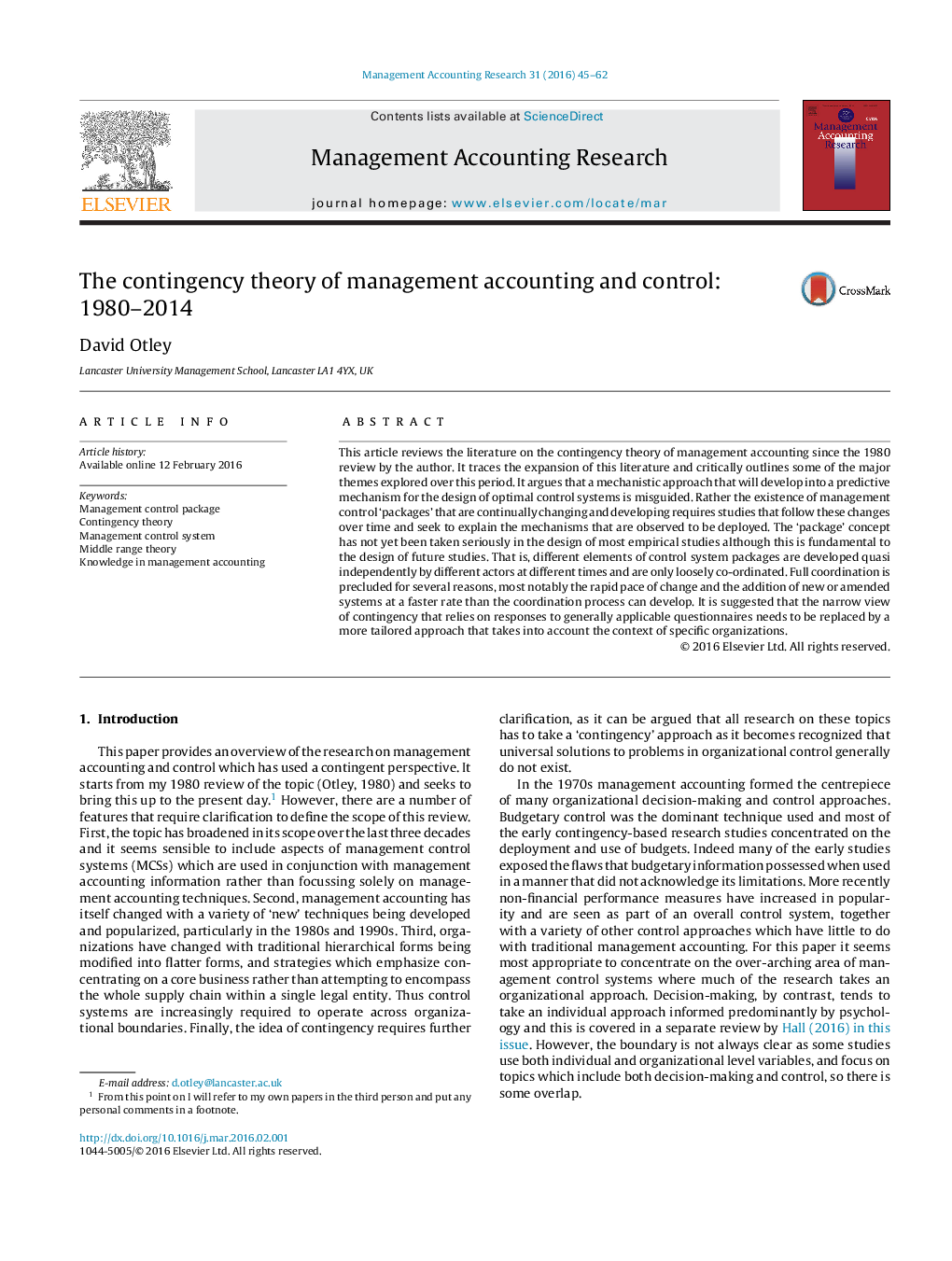| Article ID | Journal | Published Year | Pages | File Type |
|---|---|---|---|---|
| 1002588 | Management Accounting Research | 2016 | 18 Pages |
This article reviews the literature on the contingency theory of management accounting since the 1980 review by the author. It traces the expansion of this literature and critically outlines some of the major themes explored over this period. It argues that a mechanistic approach that will develop into a predictive mechanism for the design of optimal control systems is misguided. Rather the existence of management control ‘packages’ that are continually changing and developing requires studies that follow these changes over time and seek to explain the mechanisms that are observed to be deployed. The ‘package’ concept has not yet been taken seriously in the design of most empirical studies although this is fundamental to the design of future studies. That is, different elements of control system packages are developed quasi independently by different actors at different times and are only loosely co-ordinated. Full coordination is precluded for several reasons, most notably the rapid pace of change and the addition of new or amended systems at a faster rate than the coordination process can develop. It is suggested that the narrow view of contingency that relies on responses to generally applicable questionnaires needs to be replaced by a more tailored approach that takes into account the context of specific organizations.
